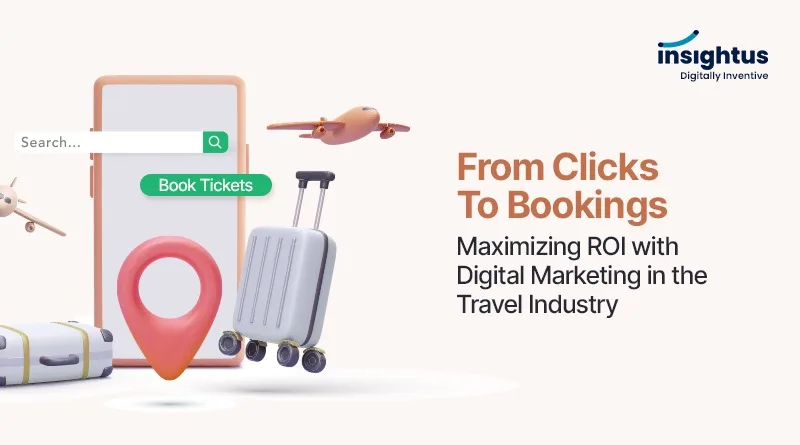Integrating Organic and Paid Tactics: The Winning Formula for Consultants & Coaches
Consultants & Coaches Industry Overview: The Consultants & Coaches industry is a broad and diverse field that encompasses a wide range of professionals who provide advice, guidance, and support to individuals and organizations. Consultants and coaches work in a variety of settings, including businesses, government agencies, non-profit organizations, and educational institutions. Consultants and coaches typically have a deep understanding of their clients’ industries or fields of expertise. They use this knowledge to help their clients solve problems, make decisions, and achieve their goals. Consultants and coaches may also provide training, education, and development programs to help their clients improve their skills and knowledge. The Consultants & Coaches industry is a dynamic and ever-changing field. Consultants and coaches must be able to adapt to new trends and technologies and to stay up-to-date on the latest research and best practices. They must also be able to build strong relationships with their clients and to create a safe and supportive environment in which their clients can learn and grow. Types of Consultants and Coaches There are various types of consultants and coaches who provide their expertise and guidance in different areas. Here are some common types: These are just a few examples of the many types of consultants and coaches & every industry requires different approaches to marketing themselves II. Understanding the Target Audience A. Defining the ideal client persona: To effectively connect with your target audience, it’s important to create a detailed profile of your ideal client persona. This involves considering factors such as demographics, psychographics, challenges, goals, and motivations. Here’s an example: Example: Let’s say you’re a life coach specializing in career transitions for professionals in their 40s who are feeling stuck in their current jobs. Your ideal client persona may be a successful mid-career professional, aged 45-55, with a stable income but lacking fulfillment in their work. They may have a desire to pursue their passion or find a greater work-life balance. By defining this persona, you can tailor your digital marketing content and strategies to address their specific pain points and aspirations, positioning yourself as the solution to their career challenges. B. Conducting market research and competitor analysis: Market research and competitor analysis help you gain insights into the broader industry landscape and your competitors’ strategies. This knowledge empowers you to identify opportunities and differentiate your services. Here’s an example to illustrate this point: Example: Continuing with the previous example, as a career transition coach, you might conduct market research to understand the current job market trends, emerging industries, and in-demand skills. This information can help you tailor your services to align with the needs of your target audience. Additionally, by analyzing your competitors, you can identify their strengths and weaknesses, the unique value they offer, and any gaps in the market. By thoroughly understanding your target audience and conducting comprehensive market research and competitor analysis, you can shape your digital marketing strategies to effectively reach and engage potential clients. Build your Personal Brand : Personal branding involves defining your unique value proposition and presenting it consistently across various platforms. For example, let’s consider a marketing consultant named Sarah. Sarah builds her personal brand around being an expert in digital marketing strategies for small businesses. She focuses on showcasing her expertise in social media marketing, content creation, and lead generation. Through consistent messaging and valuable content, Sarah positions herself as a go-to resource for small business owners seeking marketing guidance. Here are key steps to build personal branding: 1. Define your Unique Value Proposition: Your unique value proposition (UVP) is what sets you apart from others in your industry. It’s the combination of your skills, experiences, and personality that makes you unique. Identify your strengths, core values, and the specific benefits you offer to your clients. For example, as a career coach, your UVP might be helping professionals navigate career transitions by providing personalized guidance and strategies. 2. Craft your Brand Story: Your brand story should reflect who you are, what you stand for, and the journey that led you to your current expertise. Share your personal and professional experiences that shaped your approach and the impact you aim to make. For Example, as a business consultant, you can narrate how you overcame challenges in your own entrepreneurial ventures, which led you to develop effective strategies for other businesses. 3. Develop a Consistent Brand Voice: Your brand voice encompasses the tone, language, and style you use to communicate with your audience. It should align with your target clients and convey your expertise in a relatable manner. For example, if you’re a wellness coach targeting millennials, your brand voice might be conversational, friendly, and infused with a touch of humor, reflecting the lifestyle and preferences of your audience. 4. Build an Online Presence: Establishing a professional online presence is crucial for personal branding. Create a website that showcases your expertise, services, and success stories. Include a captivating bio that highlights your unique value proposition. Leverage social media platforms where your target audience is active, and consistently share valuable content, insights, and updates. Engage in conversations and build relationships with your followers. For example, as a marketing consultant, you can share tips and case studies on LinkedIn to position yourself as an industry thought leader. 5. Provide Valuable Content: Content creation is a powerful way to demonstrate your expertise and provide value to your audience. Create blog posts, videos, podcasts, or infographics that address your audience’s pain points, offer practical advice, or share insights from your industry. For Example, as a financial consultant, you can create a blog series on investment strategies or a YouTube video on managing personal finances. 6. Foster Relationships and Networking: Building relationships with your target audience and industry peers is essential for personal branding. Engage in conversations, respond to comments and inquiries, and show genuine interest in helping others. Attend industry conferences, seminars, and networking events to meet potential clients and collaborators. For example, as a leadership coach, actively participate in industry forums and engage
Integrating Organic and Paid Tactics: The Winning Formula for Consultants & Coaches Read More »






